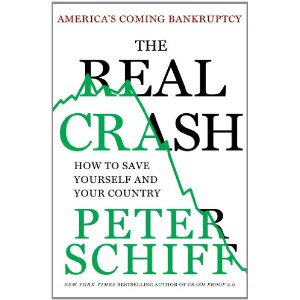
Index investing outperforms active management year after year.–Jim Rogers
Reader: How Do I learn how to invest? Suggestions?
My reply follows in three parts: What NOT to do, traditional advice, and what I suggest.
What NOT to do
Here is what you should NOT do when learning how to invest.
Ignore the difference between price and value: http://www.youtube.com/watch?v=pMz_sPs11HU
Sit all day watching CNBC so you can be “up on the economy and markets.” http://video.cnbc.com/gallery/?video=3000034368
Buy whatever Cramer recommends:http://www.youtube.com/watch?v=gUkbdjetlY8 but wait until the price pops higher so you can be sure. You remember the adage: “Only buy what goes up, and if it don’t go up, don’t buy it.” If you can find the most popular companies mentioned relentlessly in the news wait until the price has been rising for a several months, then buy. Price is everything. Be part of a group. Ignore any conflicting information in your investments because you won’t be successful being negative. After any purchase, ask friends what they think of the stock. Choose someone randomly and ask them why you own the stocks you have in your portfolio. If they don’t answer, yell at them for their stupidity.
After losses, blame anyone but yourself. Buy as many stock-tip newsletters as you can afford, so you don’t miss anything. If the story sounds good, then buy the stock. Read Barron’s to supplement what you hear on CNBC and buy what the experts think–just do it quickly. Avoid becoming confused by reading the 10-K, proxy, annual reports, product and customer information and/or credit reports. Do what the charts say. Attend expensive training and trading schools like http://www.tradingacademy.com/stamford/ (Click on Video)
Or http://www.wallst-training.com/
You will make so much money that spending $10,000 for a two-day course will be a great “investment.”
Spend as much time learning about Macaulay Duration, efficient frontiers, and predicting the markets as you can. Live by the saying, “Often wrong, but never in doubt.”
Traditional advice in order of preference:
- http://www.aier.org/product/how-invest-wisely-2010 A non-profit research organization on economics and personal investing in Great Barrington, Ma. A good source of independent research for individual investors. Recommended that you view their store on investing materials.
- http://news.morningstar.com/classroom2/home.asp?colId=397&CN=COM This site has a series of classes to teach you the simple basics. Not bad for beginners.
- American Association of Individual Investors: http://www.aaii.com/
- http://www.fool.com/how-to-invest/index.aspx?source=ifltnvpnv0000001
- http://finance.yahoo.com/education/begin_investing/article/101181/Advice_for_a_Novice
What I suggest
Any advice I give is from my perspective so what works or worked for me may not fit your personality, goals and situation. With that caveat let me suggest:
First, read the classics: The Intelligent Investor by Ben Graham, Rev. Edition by Zweig. Get a feel for how Graham approaches investing. Next read, Margin of Safety by Seth Klarman (in Value Vault) as a further reinforcement of the value investing approach. You can then read, The Interpretation for Financial Statements by Graham in the Value Vault to give you a basic background for reading 10-Ks.
You will need to read Warren Buffett’s letters to shareholders several times to grasp all the points he is making. A good book, The Essays of Warren Buffett here:http://www.amazon.com/Essays-Warren-Buffett-Lessons-Corporate/dp/0966446119organizes his letters into subjects for easier reading. Or go to http://www.berkshirehathaway.com/letters/letters.html
Second, pick an industry with a simple product that you can understand with a few industry participants and pretend to write a story on the industry. Take the carbonated beverage or beer industry–the product is simple and there are fewer than a dozen major companies in either industry. Read the 135-year history of Coca-Cola, read a book or two about Pepsi. Then take five years of annual reports and proxies from Cott beverages, Pepsi, and Coke and read them.
Third, figure out what their returns on capital are, sales trends, profit margins and company risks. Would you want to buy one of these businesses? At what price? Why are certain companies doing better or worse than their competitors? Have their market shares changed much over the years? Can they raise prices?
You will need to spend about two or three months reading about 30 minutes each day but you will become fairly knowledgeable about beverages. If you don’t like my idea for beverages then choose an industry/business that YOU are really interested in.
Finally, read through Security Analysis by Ben Graham (6th Edition). Note your interest in the readings. If sitting alone for hours is agony or pawing through Security Analysis is unbearable, then that will tell you volumes. Don’t worry if you haven’t the personality or interest to be a self-directed investor, just know your limitations and respect them.
If you struggle with financial statements, take a free internet course on accounting or take a course at a community college. There are plenty of programmed texts so you can learn on your own.
Learn Austrian economics–see prior post on studying financial history here: http://wp.me/p1PgpH-wN.
If you are very ambitious, get a subscription to Grants at http://www.grantspub.com. Then download all the issues since 1983, read all the books mentioned in the issues and try to understand the investment merits or lack thereof in the companies mentioned. You will learn more than going to business school.
Read the commentary in the Value Investors Club at http://www.valueinvestorsclub.com/value2
Learn how investors view various investments. Try to reverse engineer the company recommendation by looking at the original financial statements.
I hope this helps. Let me know how your journey progresses.











